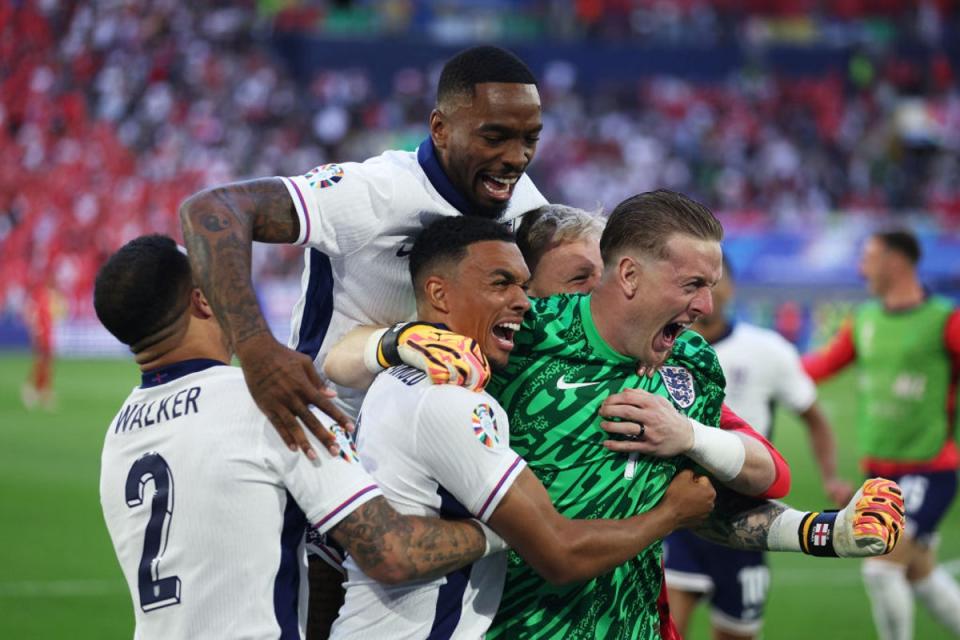The six-year behind-the-scenes process which led to England’s perfect penalties
England beat Switzerland on penalties in the Euro 2024 quarter-final thanks to a changed secret approach that involved rethinking every detail of a penalty shootout, right down to the steps that players take and where they should look. One insight was even to not practise too much, as this can have a detrimental effect on nerves.
The Football Association have been so protective of these decisive tie-winning approaches that they stopped players like Jordan Pickford and Ezri Konsa going into too much detail about the “process” after Saturday’s quarter-final win, but some of the elements have been revealed in a book by an influential former staff member. Chris Markham, who is now sporting director at Bolton Wanderers, previously worked as Game Insights Lead at the FA for four years and through the watershed 2018 World Cup.
He was personally thanked by Gareth Southgate after that crucial 2018 last-16 win over Colombia in Russia. The manager first consulted Markham in 2017, before staging a wider meeting to convince the players in March 2018. Although the Euro 2020 final shootout against Italy showed there was still work to do, the results were seen in the five perfect penalties against Switzerland.
Some of the thinking is revealed in an interview for the book Pressure: Lessons from the Psychology of the Penalty Shootout by Norwegian psychology and sports professor, Geir Jordet.
Markham said: “I think I found quotes from each of the last five England managers before Gareth Southgate, not including Sam Allardyce, that said either the penalty shootout was a lottery, penalties are all down to luck, or that you can’t practise that kind of pressure. From a psychological perspective, speaking about a lottery takes ownership away from the players. And that was the thing for me, to give them it back.
“To take control of not just the kick itself but the whole process. Initially it was about the perceived control. How can we increase the level of perceived control for the players and the staff and everybody?
“Luckily for us, Gareth and his staff were extremely open-minded and respectful of good quality work. But they don’t suffer fools gladly so we knew it had to be at a really high standard.
“Talking about run-up steps, angle, pace; you know everything from breathing techniques, optimal areas of aiming, goalkeepers, looking at masks and goggles. I went into Gareth’s office, we basically printed out and cut into bits of paper all the different topics and Gareth then prioritised, literally on the floor and table, which ones he thought were important and which ones he thought were less of a priority.”

During tournaments, Markham would stay back at St George’s Park, compiling all the necessary data. He remembers watching the Colombia game and noting how chaotic their players seemed in crowding around goalkeeper David Ospina, in contrast to England’s composure.
“I think framing was the main bit. All this work… was ultimately going into building the reception that we have control over this.
“It is not something like a lottery; we can be better prepared than the other team because they won’t be thinking about it in this much detail. When the shootout happened, I’d never been so nervous. I felt sick.
“I stayed up to like 9am that morning because we had to prepare the information on Sweden. So, I still don’t think I’ve celebrated it now.”
He will have watched what happened against Switzerland with particular satisfaction.

 Yahoo Sport
Yahoo Sport 



































































